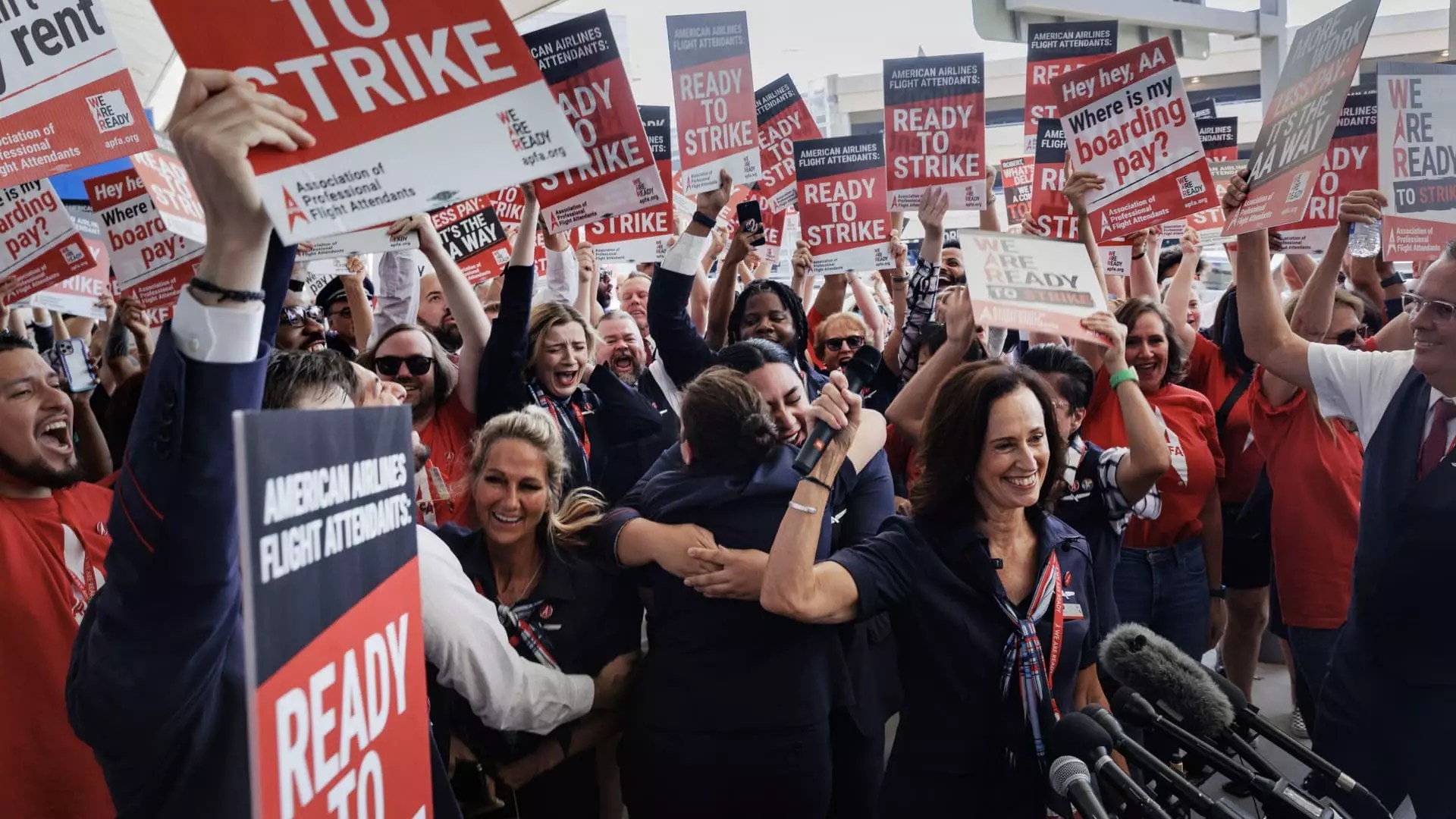The recent approval of a five-year labor agreement by American Airlines flight attendants signifies a pivotal moment not only for the airline but also for the aviation industry as a whole. With a striking 87% of voters endorsing this contract, the cabin crews are set to receive pay increases of up to 20.5%, effective from the beginning of October. This decision concludes one of the most heated and protracted negotiations in the sector, emphasizing the determination of airline staff to secure fair compensation amid an evolving economic landscape.
Context of the Negotiations
The labor negotiations were not just a matter of contracts but highlighted the broader issues affecting airline workers following the COVID-19 pandemic. Flight attendants, who comprise the largest collective of unionized employees at American Airlines, have been vocal in their demands for better pay and improved working conditions. The ongoing increases in the cost of living have only exacerbated these demands, prompting a renewed urgency in labor negotiations across the industry.
The involvement of key governmental figures, such as Transportation Secretary Pete Buttigieg and Labor Secretary Julie Su, alongside the National Mediation Board (NMB), indicates the high stakes of these negotiations. Their engagement served as a reminder of the importance of collective bargaining in the airline industry, particularly as labor movements gain momentum across various sectors.
Julie Hedrick, president of the Association of Professional Flight Attendants, articulated that the new contract symbolizes a significant achievement for the flight attendants. It not only ensures immediate financial relief through substantial pay increases but also includes retroactive payments to compensate for the duration of the extended negotiations. This compensatory aspect is particularly important as it acknowledges the time and effort put forth by the flight attendants during a period marked by uncertainty and challenges.
American Airlines CEO Robert Isom’s statement on reaching this agreement underlines its significance, framing it as a priority for the airline to avert possible work stoppages that could have resulted from unresolved disputes. By finalizing the contract, American Airlines has not only created a more stable work environment but has also averted the disruptions that a potential strike could have caused, both for the airline and its passengers.
As American Airlines closes this chapter in labor negotiations, the situation sets a precedent for other airlines facing similar challenges. United Airlines flight attendants continue their negotiation processes, while Alaska Airlines crew members recently rejected a tentative deal, showcasing the variability in labor relations within the aviation industry. The broader implications of these negotiations are mirrored in industries like automotive and entertainment, where workers have mobilized effectively to secure better pay and conditions, often through strikes.
With Boeing workers also poised to vote on a new contract involving substantial raises, the dynamic within labor movements is evolving rapidly. As these discussions unfold, it becomes clear that labor solidarity and activism are reshaping the negotiating landscape, posing challenges as well as opportunities for corporations within the airline and broader sectors. The developments at American Airlines are not merely an isolated success; they signify strides towards empowering workers and establishing more equitable labor practices industry-wide.


Leave a Reply